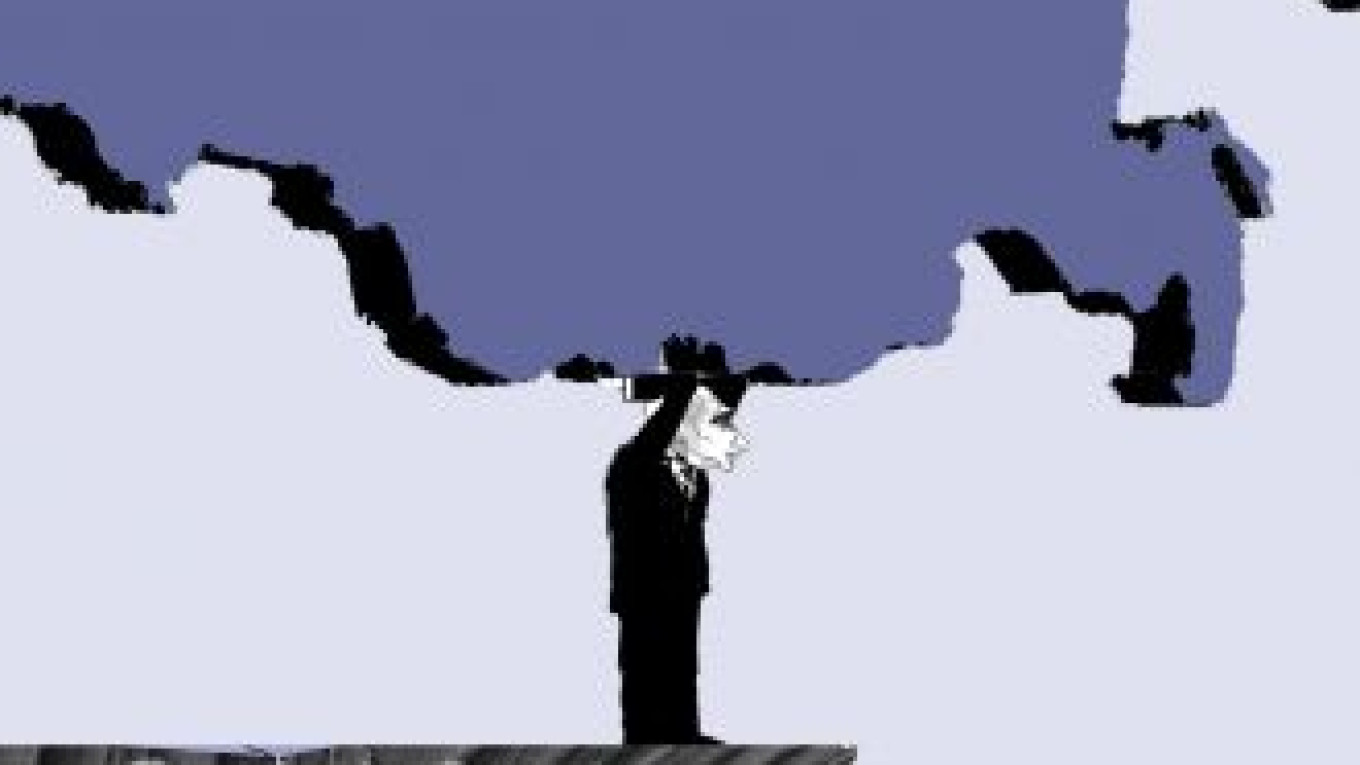After Vladimir Putin took power as president in 2000, I numbered among the handful of Western commentators who believed that Russia finally had a leader who could steer the country in the right direction.
With both feet planted firmly in the pro-Putin camp, I argued many times during the past decade that Putin was putting Russia on an even keel after the chronic instability of the 1990s. If he was doing so by pursuing policies not to the liking of the West, I thought, that was all well and good.
After all, Russia had to develop according to its own individual history and culture rather than attempt to follow precepts from abroad. In my view, Putin was to be applauded for his achievements, not least in making Russia more prosperous and stable.
Now, following Putin’s announcement that he will return to the presidency in the spring, I find myself with one foot inside and one foot outside the pro-Putin camp. To some extent, I understand the indigenous arguments in favor of Putin’s decision. Putin is the most capable political leader in Russia today. He enjoys far more support than any other politician and is best equipped to lead the country in the current unstable global environment.
I also realize that Russians are less than enthusiastic about President Dmitry Medvedev, mainly because he lacks the strongman aura of his mentor, while his reformist initiatives find little resonance among the majority of Russians, who remain wary of any sweeping change.
But while I understand all of this, I cannot endorse Putin’s decision and now find myself a reluctant critic. Putin had an historic opportunity to consolidate his achievements of the past decade. This would have meant choosing the course of action most likely to ensure the continued existence of the stronger, more stable state in whose creation he has been so instrumental — namely, making way for a successor whose credibility and authority derive solely and directly from the Constitution. ?
By not doing so, Putin has committed two potentially fatal errors. First, he has shown disregard for something that he has claimed consistently to hold most dear — namely, rule of law. While admittedly he has not violated the letter of the Constitution — neither four years ago when he became prime minister while remaining de facto supreme leader, nor now by returning to the Kremlin for a third term as president — he has violated its spirit.
Rule of law is an absolute value. No one in authority can choose to accept, reject or manipulate it to his own advantage. If he does, he compromises that value, almost certainly beyond repair. This is the sorry precedent Putin has established for all future leaders of Russia and the unfortunate example he has set to Russian officialdom.
Second, Putin has created a false sense of stability. No edifice is sound if it rests on one pillar alone. If that pillar is a single individual, it will teeter, if not collapse, when he leaves the scene, either voluntarily or involuntarily, meaning his mortality. At any time, he could succumb to illness or fall victim to an assassin’s bullet or suicide bomb.
Some argue that Putin had no choice — that Russia suffers from a dearth of leadership talent and that for this reason his return to the Kremlin was unavoidable. But that argument simply does not hold water. To imply that Russia has exhausted its ability to deliver leaders equal to the tasks ahead is absurd. If that were the case, Russia would indeed be doomed.
What Putin has done by opting to return is merely postpone the problem of succession in Russia. The danger is that postponement will only make his inevitable departure all the more destabilizing. In effect, Putin has planted a time bomb — one that could go off at any time. ?
Former French General and President Charles de Gaulle reportedly said, “The graveyards of the world are full of indispensable men.” This remark is droll, but it does underscore an essential truth.
A truly great leader does not cling onto power indefinitely. Rather, he knows when his job is done and when to facilitate a safe change of guard. After more than a decade in charge, Putin’s job has been done. The longer he stays on, the more he will devalue his undoubted achievements.
Vladimir Sobell, formerly senior economist at Daiwa Securities, is an independent analyst based in London.
A Message from The Moscow Times:
Dear readers,
We are facing unprecedented challenges. Russia's Prosecutor General's Office has designated The Moscow Times as an "undesirable" organization, criminalizing our work and putting our staff at risk of prosecution. This follows our earlier unjust labeling as a "foreign agent."
These actions are direct attempts to silence independent journalism in Russia. The authorities claim our work "discredits the decisions of the Russian leadership." We see things differently: we strive to provide accurate, unbiased reporting on Russia.
We, the journalists of The Moscow Times, refuse to be silenced. But to continue our work, we need your help.
Your support, no matter how small, makes a world of difference. If you can, please support us monthly starting from just $2. It's quick to set up, and every contribution makes a significant impact.
By supporting The Moscow Times, you're defending open, independent journalism in the face of repression. Thank you for standing with us.
Remind me later.


